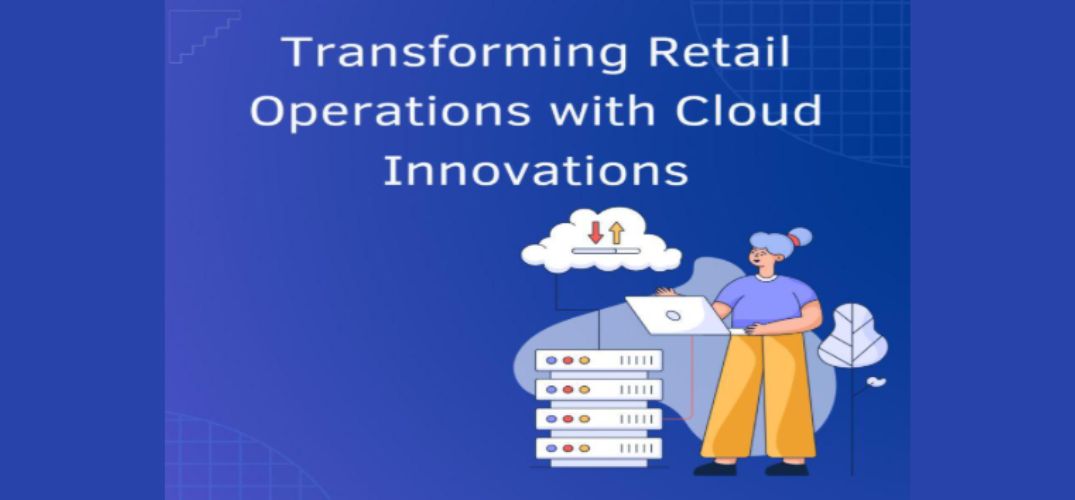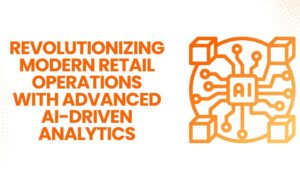In today’s rapidly evolving digital landscape, the integration of cloud computing into retail is revolutionizing traditional operational models. This transformation encompasses a complete overhaul of inventory management, demand forecasting, and customer engagement strategies, driven by real-time data processing, predictive analytics, and advanced automation. By adopting cutting-edge technologies like IoT, AI, and edge computing, retailers are achieving unprecedented levels of efficiency, accuracy, and scalability. Chaitanya Teja Musuluri, a visionary in this domain, explores these innovations, showcasing how they are redefining the future of retail.
Revolutionizing Inventory Management
Cloud technology has redefined inventory management systems by enabling real-time tracking and optimization. Modern platforms, powered by IoT sensors and RFID technology, achieve accuracy rates of 99.99%, streamlining inventory processes across vast networks. These systems process data at unprecedented speeds, reducing operational costs by up to 32.3% and improving inventory turnover rates significantly.
Distributed database systems with low latency and edge computing capabilities further enhance these solutions. By decentralizing data processing, retailers experience a 42% decrease in transmission costs and a reduction in central server loads, leading to more efficient operations.
Enhancing Demand Forecasting
The role of predictive analytics in retail has been amplified by advanced cloud computing frameworks. Machine learning algorithms analyze extensive datasets, incorporating over 250 variables per product category, to deliver precise demand forecasts. These systems have reduced forecast errors by 42% and improved seasonal trend accuracy to over 91%.
By leveraging neural networks, retailers can integrate real-time data sources like weather patterns and social media trends into their analyses. This innovation allows businesses to anticipate demand shifts and minimize stock discrepancies, directly improving customer satisfaction and operational efficiency.
Advanced Automation and Scalability
Automation has become a pivotal element in transforming modern retail operations, enabling efficiency, accuracy, and scalability. Cloud-based platforms drive automated stock replenishment, seamlessly adjusting inventory levels in real time to meet demand fluctuations while significantly reducing manual intervention and associated errors. Similarly, automated pricing engines utilize sophisticated algorithms to evaluate hundreds of variables per product—such as competitor pricing, demand trends, and customer behavior—ensuring optimal pricing strategies. These innovations handle millions of transactions daily with sub-millisecond response times, ensuring smooth operations even during peak periods. Retailers adopting these solutions report a 27.4% boost in revenue optimization, securing a strong market edge.
Driving Operational Efficiency
The adoption of cloud computing has significantly boosted operational efficiency across the retail sector. Advanced monitoring frameworks process millions of data points daily, ensuring system uptime of 99.99%. Automated performance optimization tools identify and resolve issues in real-time, reducing system downtime and enhancing reliability.
Retailers employing these technologies have also seen substantial reductions in marketing expenditures and supply chain inefficiencies. By implementing AI-driven decision-making systems, businesses achieve better resource allocation, faster issue resolution, and higher customer retention rates.
Pioneering Security and Standardization
Security is paramount in cloud retail systems. Multi-layered protocols, including 256-bit encryption and real-time threat detection, safeguard sensitive data while maintaining system integrity. These measures have resulted in an 85% reduction in security incidents, enhancing trust and reliability.
Standardization efforts across cloud platforms are also revolutionizing data integration. By adopting unified APIs and standardized operational metrics, retailers streamline cross-platform synchronization, improving interoperability and reducing implementation costs.
Looking to the Future
The retail industry’s digital transformation is set to accelerate with emerging technologies. Blockchain is poised to enhance supply chain transparency, while IoT advancements promise greater efficiency through real-time data processing. AI-driven automation systems continue to optimize routine tasks, enabling businesses to focus on strategic growth.
As cloud computing technologies evolve, retailers will benefit from unparalleled operational capabilities and customer insights. These innovations, coupled with robust security measures and standardized frameworks, position the industry for sustained growth and innovation.
In conclusion, Chaitanya Teja Musuluri highlights that cloud computing is not merely a technological enhancement but a transformative force reimagining how retail operates at its core. It empowers businesses to embrace automation, predictive analytics, and real-time insights, paving the way for unprecedented levels of efficiency and customer satisfaction. These innovations redefine inventory management, demand forecasting, and supply chain optimization, enabling retailers to thrive in an increasingly digital marketplace while setting new benchmarks for operational excellence and personalized customer experiences.



































